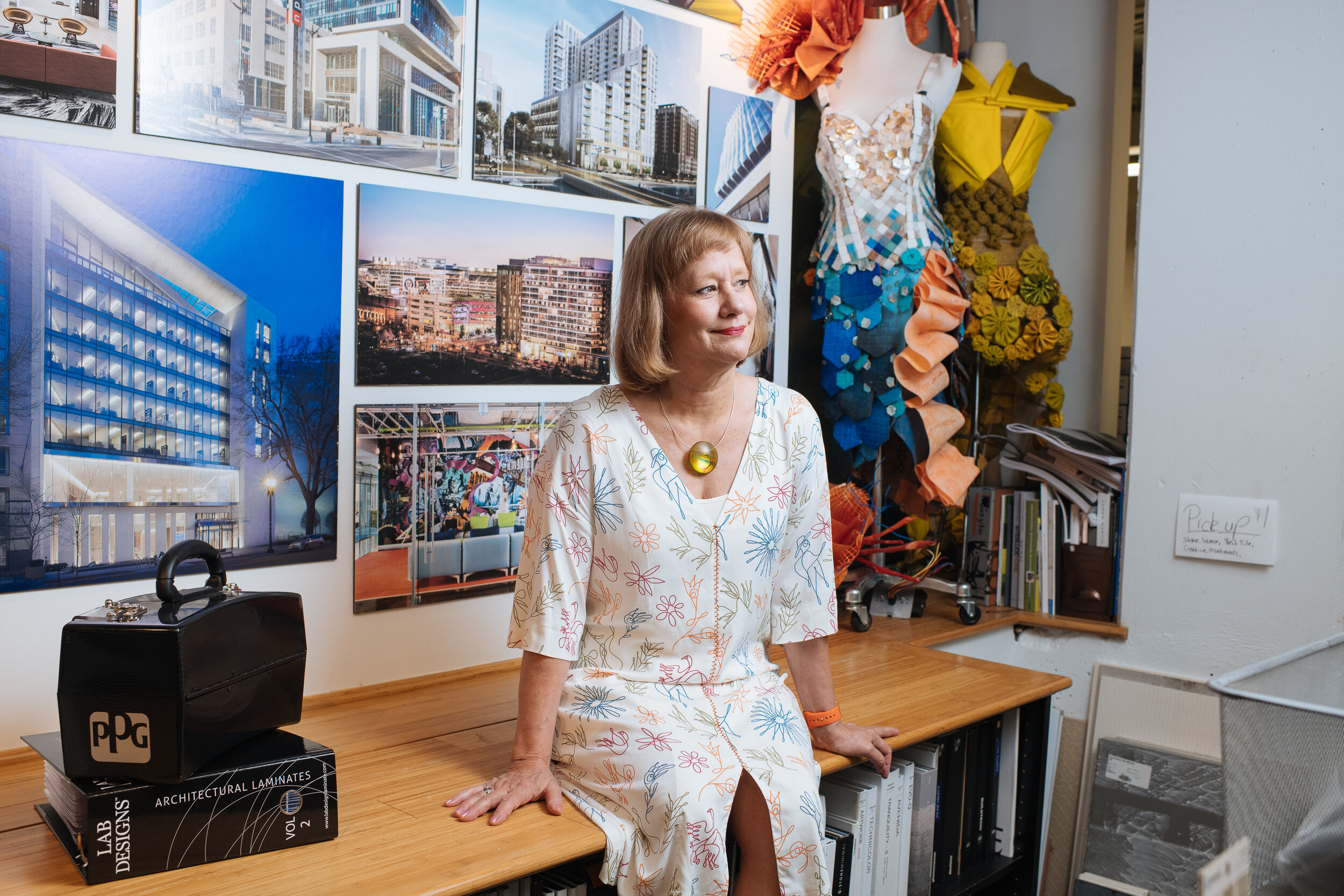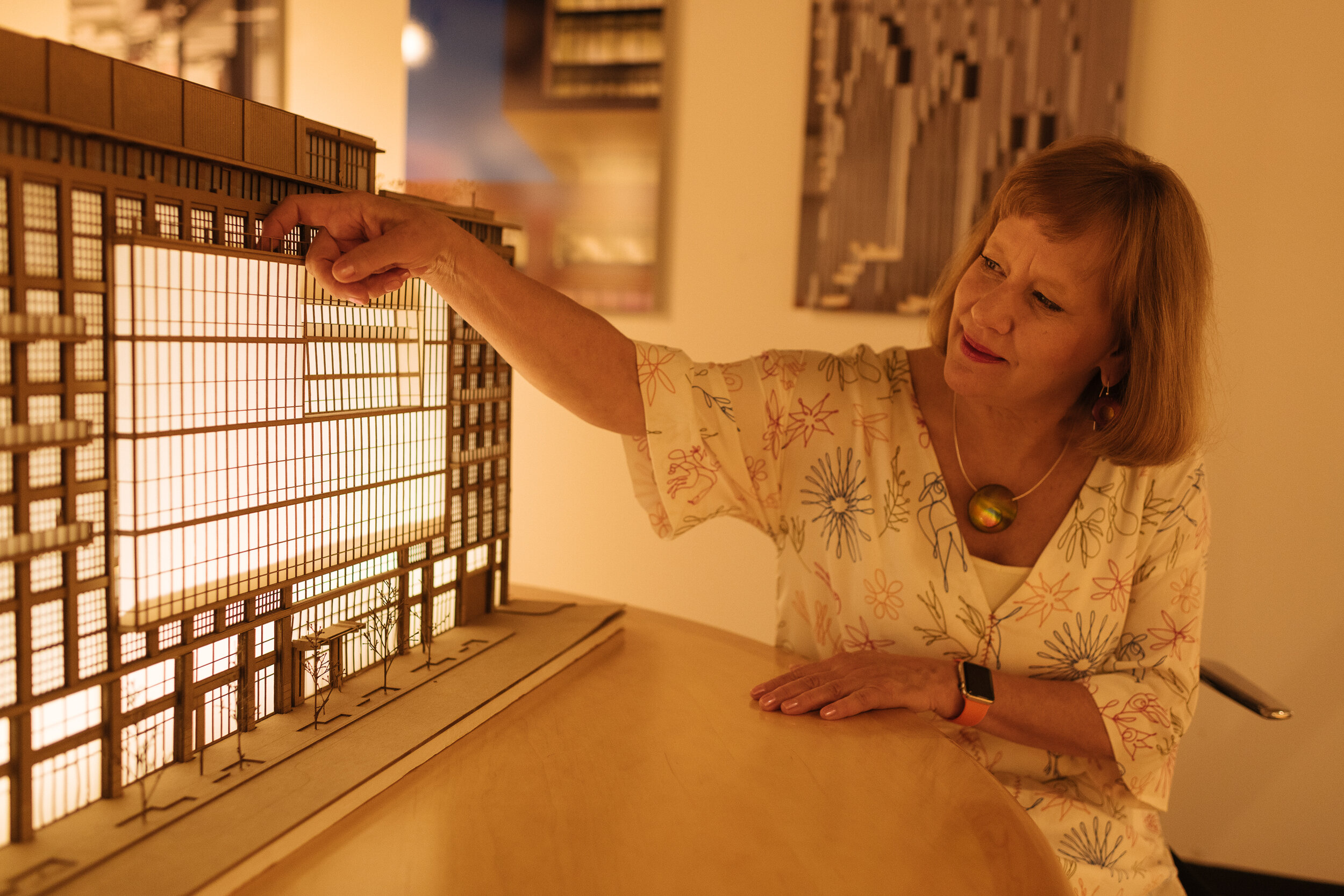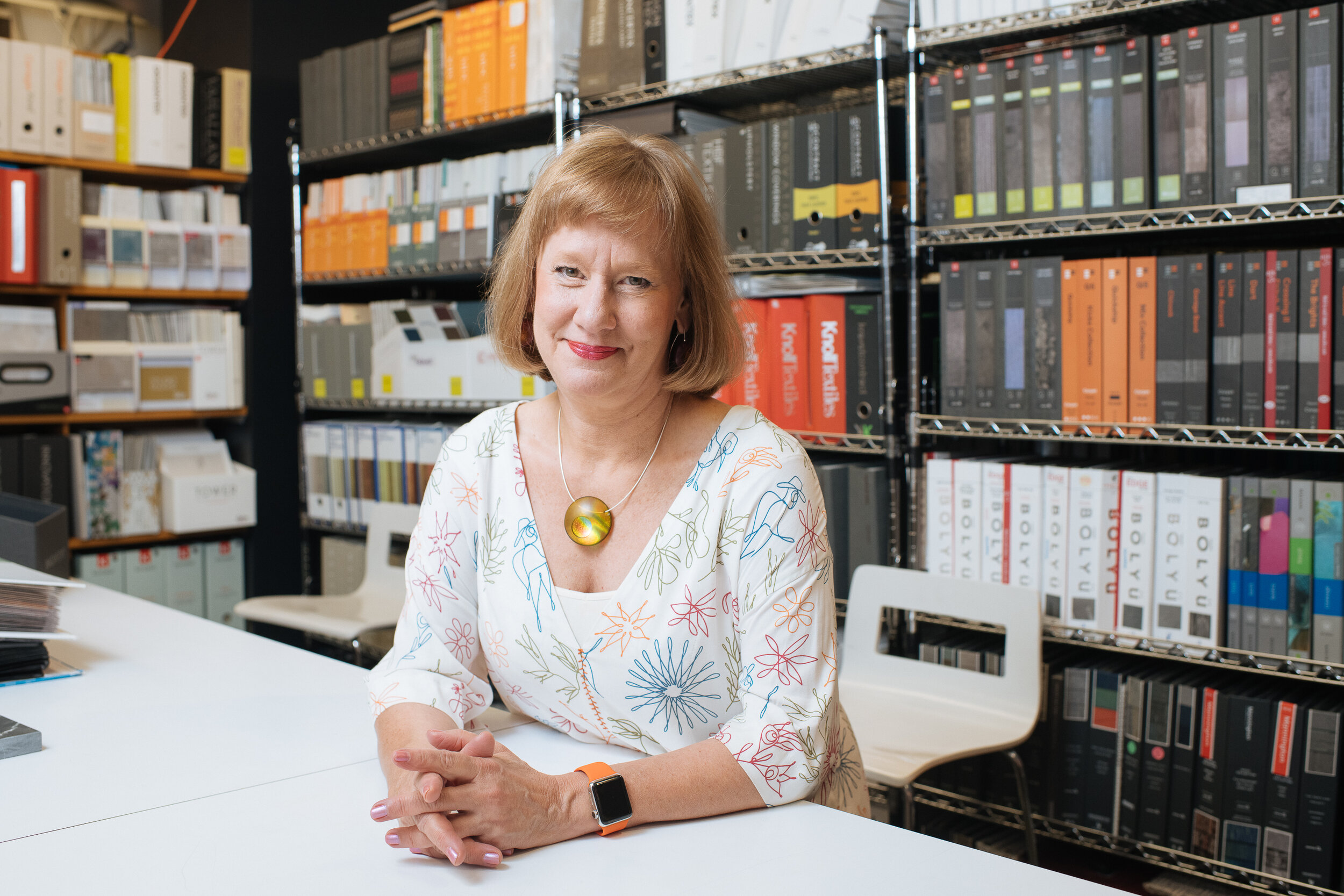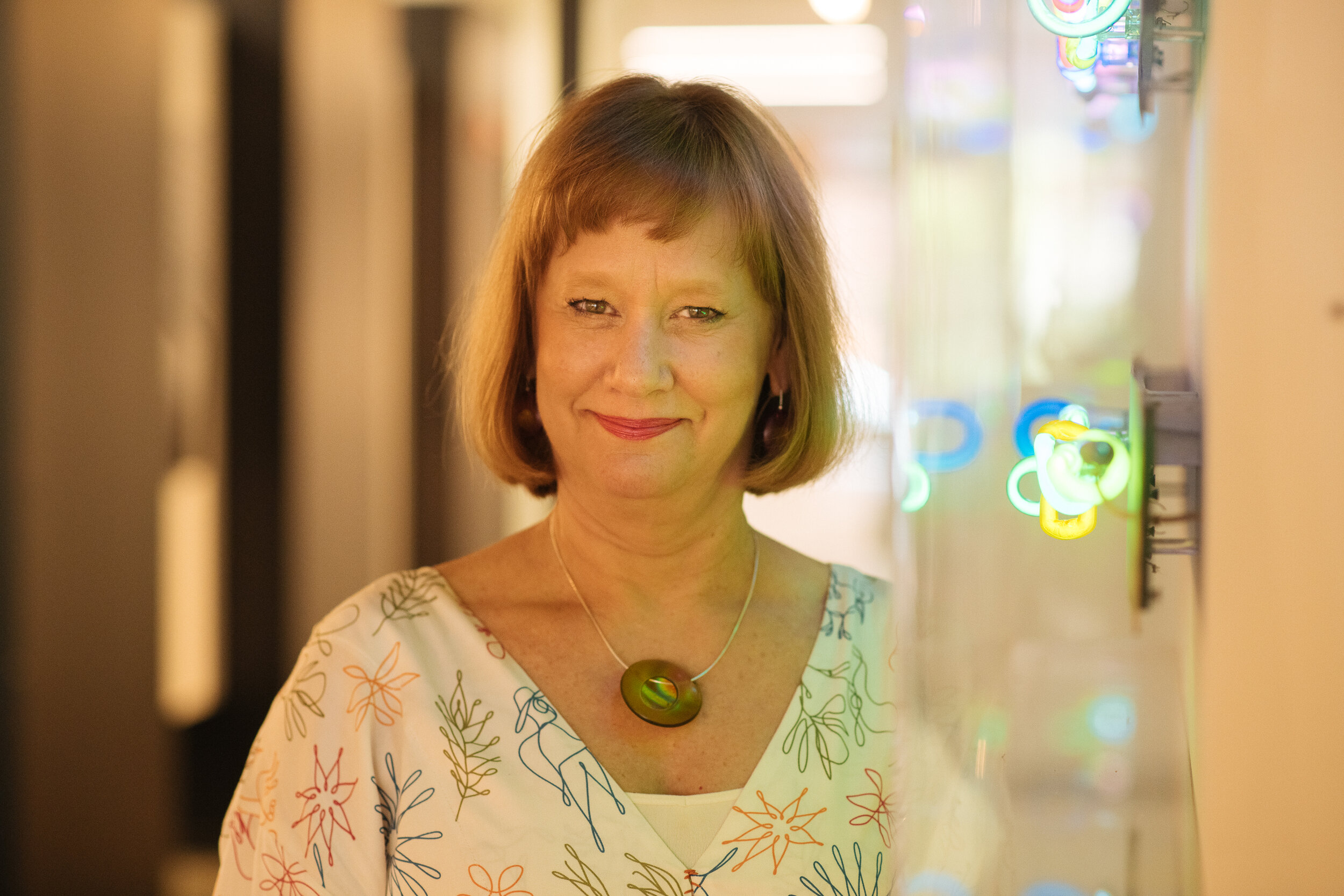‘I’m a Serial Obsessionist’
Yolanda Cole
Senior Principal, Hickok Cole
Long before Lizzo ushered in its renaissance, Yolanda Cole played the flute.
The Senior Principal of Hickok Cole had no early architecture aspirations, graduating from Ohio State with a degree in music education. When a career teaching college flute seemed too niche of a path, she pivoted.
‘Architecture was an unexpected—or maybe inspired—decision. Maybe it was because my parents built a house when I was young, and I was really excited and involved in that. Maybe it was because I was always a maker of things. I made things with wood and glass, I made jewelry, I did macramé.’
Once enrolled in architecture school, Yolanda recognized the benefit of a musical background.
‘Music is spatial and structural in many ways. It’s pattern-making and creative. All things also found in other areas of design. Intuitively I used that knowledge and creativity as it pertained to architecture.’
After graduation, Yolanda put the flute aside and focused on work—dedicating the first decade of her career to Kohn Pedersen Fox—one of New York City’s rising architecture firms in the 1980s. During her tenure, she spent two years living in Sydney, Australia where she was a designer of a skyscraper in the city’s downtown core.
Eventually, she moved to DC—experiencing a culture shock in every sense.
‘Coming from New York at that time, DC was kind of sleepy. I thought, oh my goodness, where have I gone? I was also designing skyscrapers at an early age, and when you move to a city that has a height limit, it really changes the architecture. Even so, DC is a much cooler place now than it was when I arrived.’
After establishing herself in the District and buying a small firm, Yolanda merged her company with partner Mike Hickok’s, who had just relocated to Georgetown. Seventeen years later, she’s still at the helm of Hickok Cole—tackling everything from commercial and lifestyle interiors to large-scale mixed-use office and multifamily housing.
A self-described serial obsessionist, Yolanda says there’s always a problem to solve. One of her current passions is providing housing for the influx of young families who have moved to the District.
‘They’re our big base of talent for every business in this city, and I really don’t want to see them leave. To house them in an environment like DC where prices are high, we need to increase supply, but also come up with new product types, and maybe even new zoning envelopes to accommodate middle-ish income with middle-scale architecture.’
Yolanda says this demographic is quickly reaching critical mass, with every organization from the Urban Land Institute to The Brookings Institution working toward solutions. Unsurprisingly, there’s no easy answer.
‘There are blockages to creating that supply through our zoning and policy processes of entitling and getting things built, as well as a rather significant push-back from communities because of the influx of people and amount of development. There’s an action and reaction, and it’s a contentious issue right now. The pressure is starting to mount and we need to break the log jam. We haven’t crossed that finish line.’
Under Yolanda’s leadership, Hickok Cole is also dedicating much of its research arm, iLab, to studying modular housing—the result of automation, the pressures on construction pricing, and a reduced labor force.
An aging Baby Boomer population is another concern.
‘We have the barbell of Baby Boomers, like myself. I live on 14th Street, and I like to live where the Millennials live. I’m not going to some retirement community in the suburbs. We believe there is a demographic of people who have moved back to the city who want to live a city life in their aging years, so what does that look like? We don’t believe it’s the suburban model plunked down in the city. It’s going to be more metropolitan, and have a different flavor. We’re doing a lot of research around that.’
For all of the challenges, Yolanda is fueled by pushing the envelope with creative solutions. Although DC remains far more conservative than New York or Europe, she’s noticed a sizeable shift in the culture since she first moved here.
‘It has changed tremendously and that makes me happy. It makes for a more vibrant city if there’s a lot of different types of architecture. It’s what makes a city a city to me. And I like to see things where people use ideas and materials in new ways, or think outside the norm.’
Yolanda is rarely given carte blanche on a project, but says it’s the parameters that actually force the creativity—whether she’s working in residential, or commercial.
‘There’s something more satisfying about trying to solve real-life problems, and that makes for beautiful architecture and design. There’s plenty to consider. On the interior side, it’s designing office space for individuals to do their best work. What are the future patterns of work, and how is co-working changing how people think about their office space? In any project, we take the puzzle pieces and try to squeeze as much great design out of it as we can. I want us to think forward and do work that matters to the world.’
Always looking at the big picture, Yolanda is eager to design another skyscraper in her lifetime, with more freedom of height and form than DC architecture allows. A framed photo of the Sydney skyscraper hangs on her office wall—waiting for its full-circle moment.
She’s already experienced such moments in other areas of her life. Eight years ago, Yolanda had her professional-quality flute refurbished and joined a small chamber orchestra she discovered on meetup.com. They’ve since grown into a full orchestra and non-profit, providing orchestral and chamber concerts throughout the city.
In music, as in architecture, Yolanda has learned to follow her bliss.
‘I’m always trying to change the world, one way or another, and I have lots of passions. It all comes back around.’





